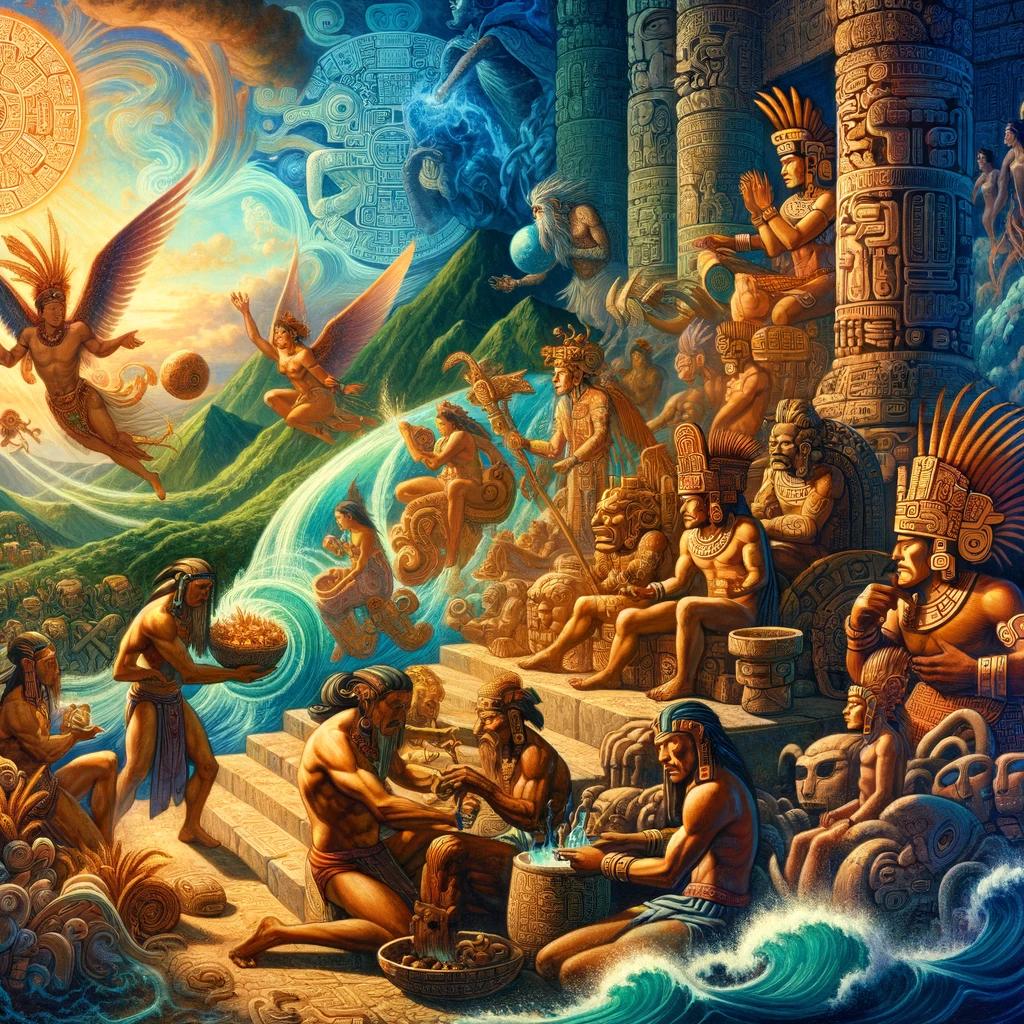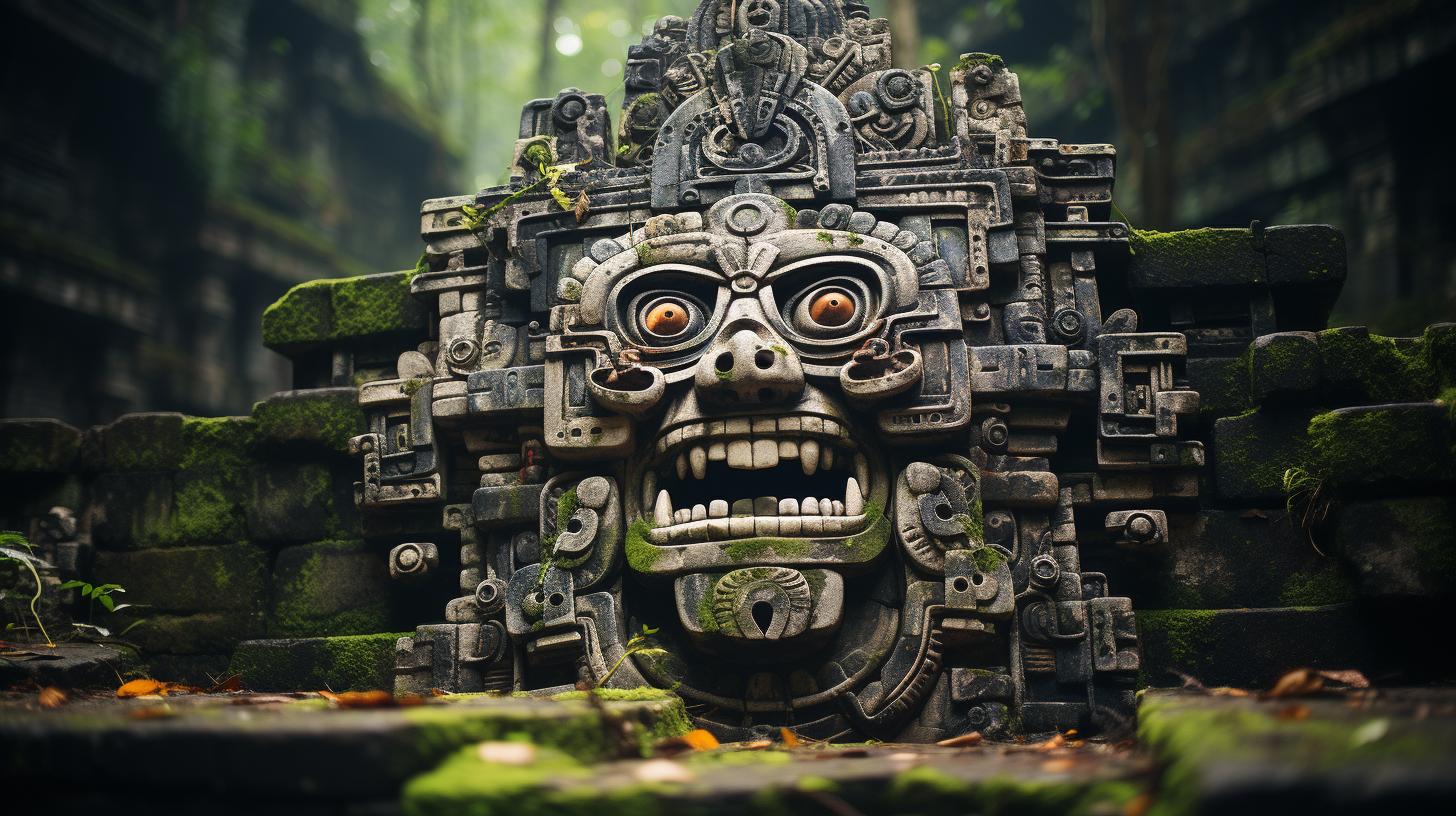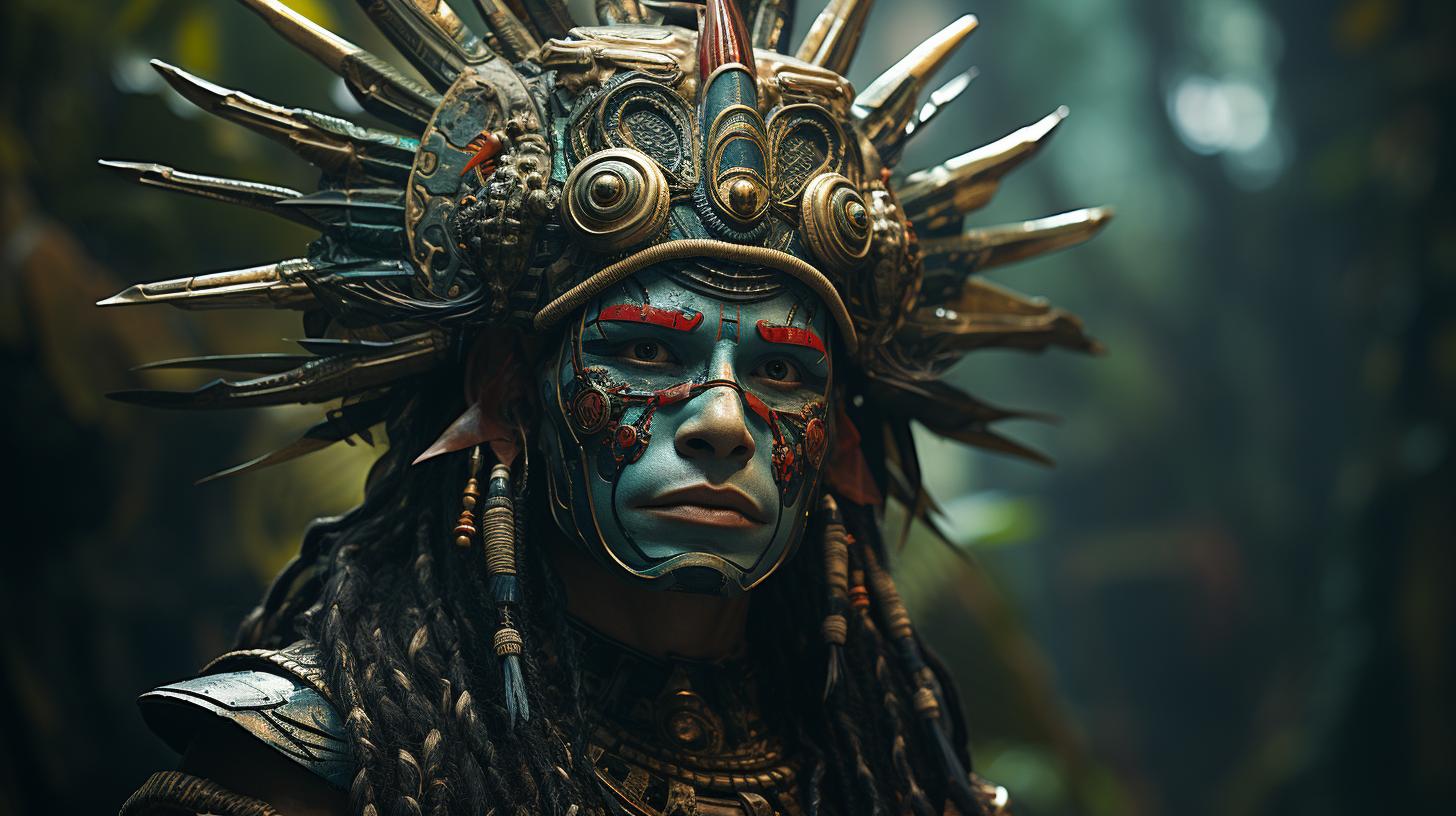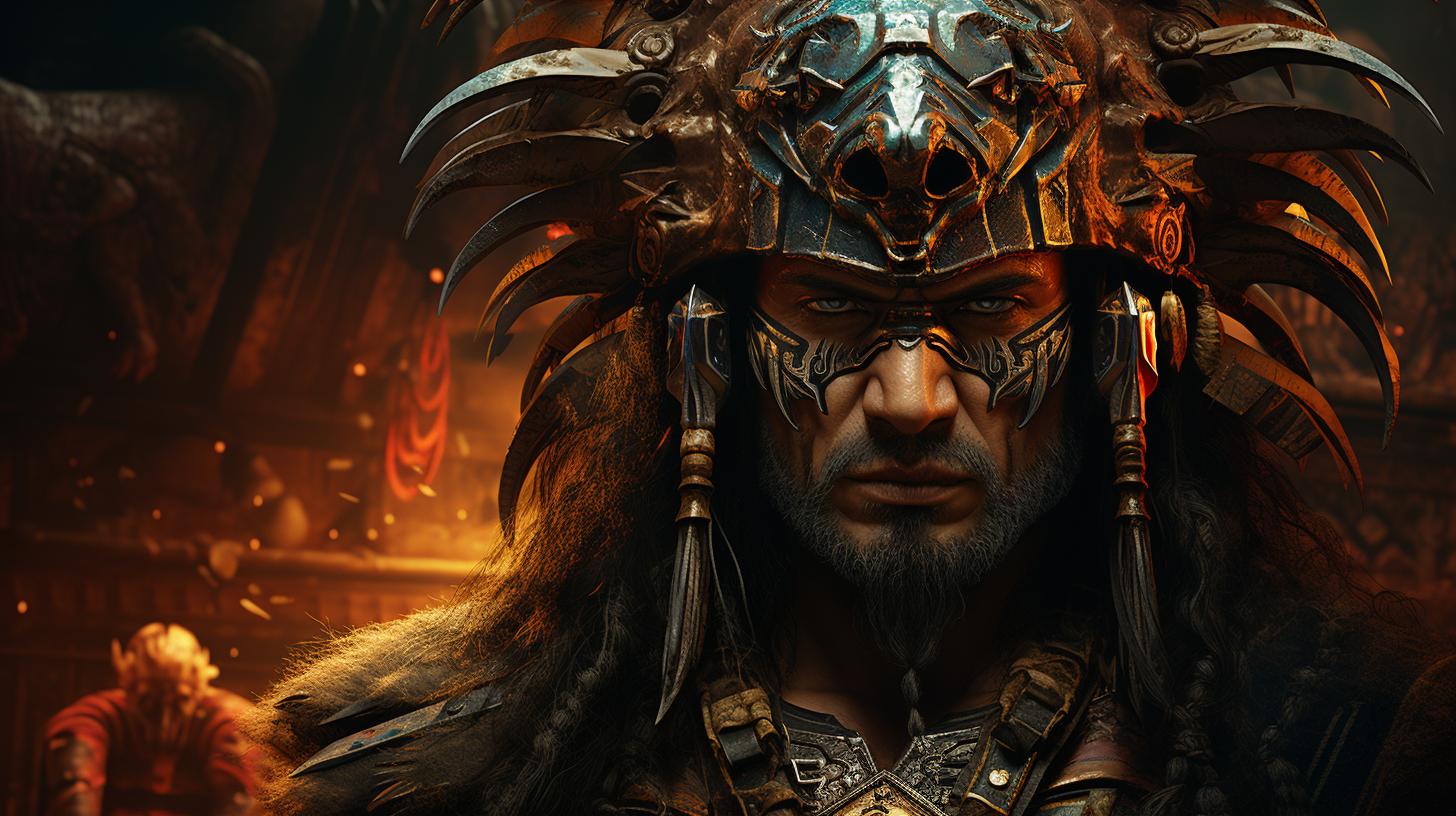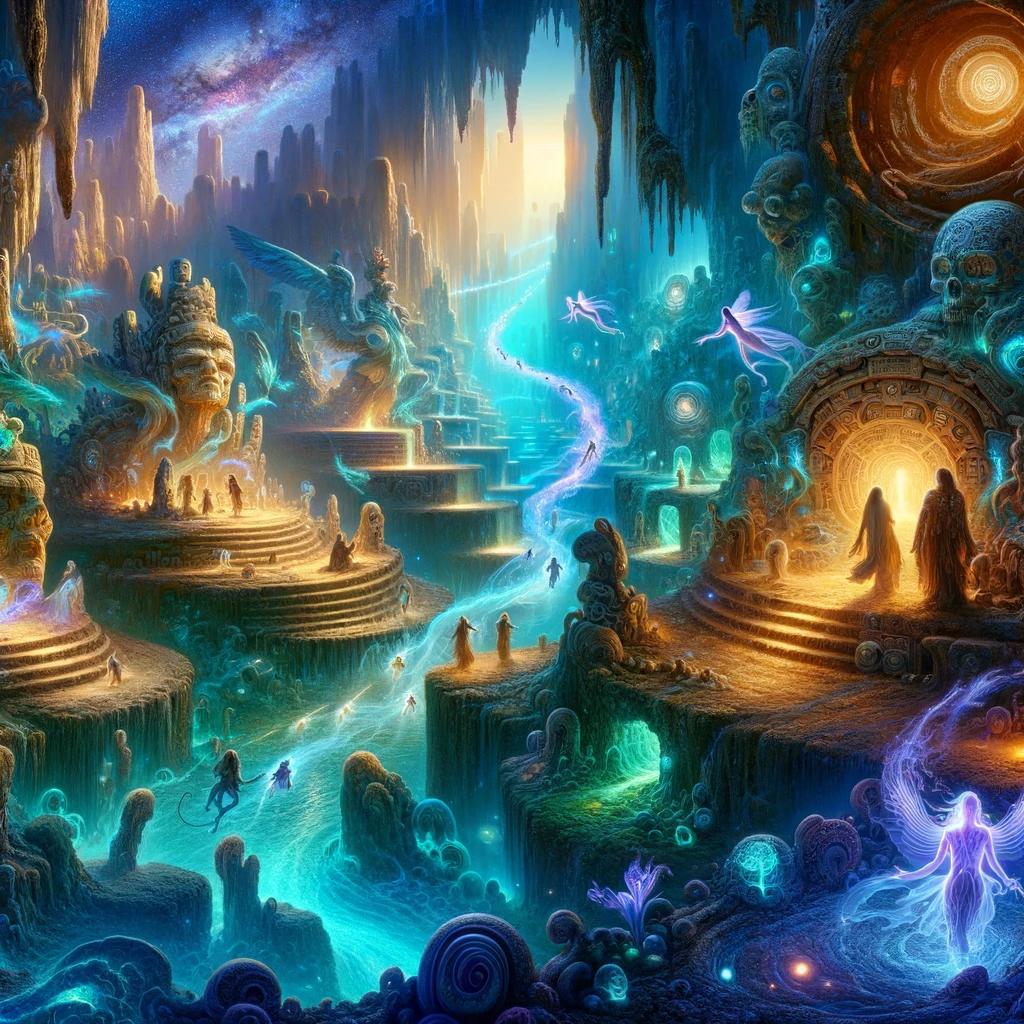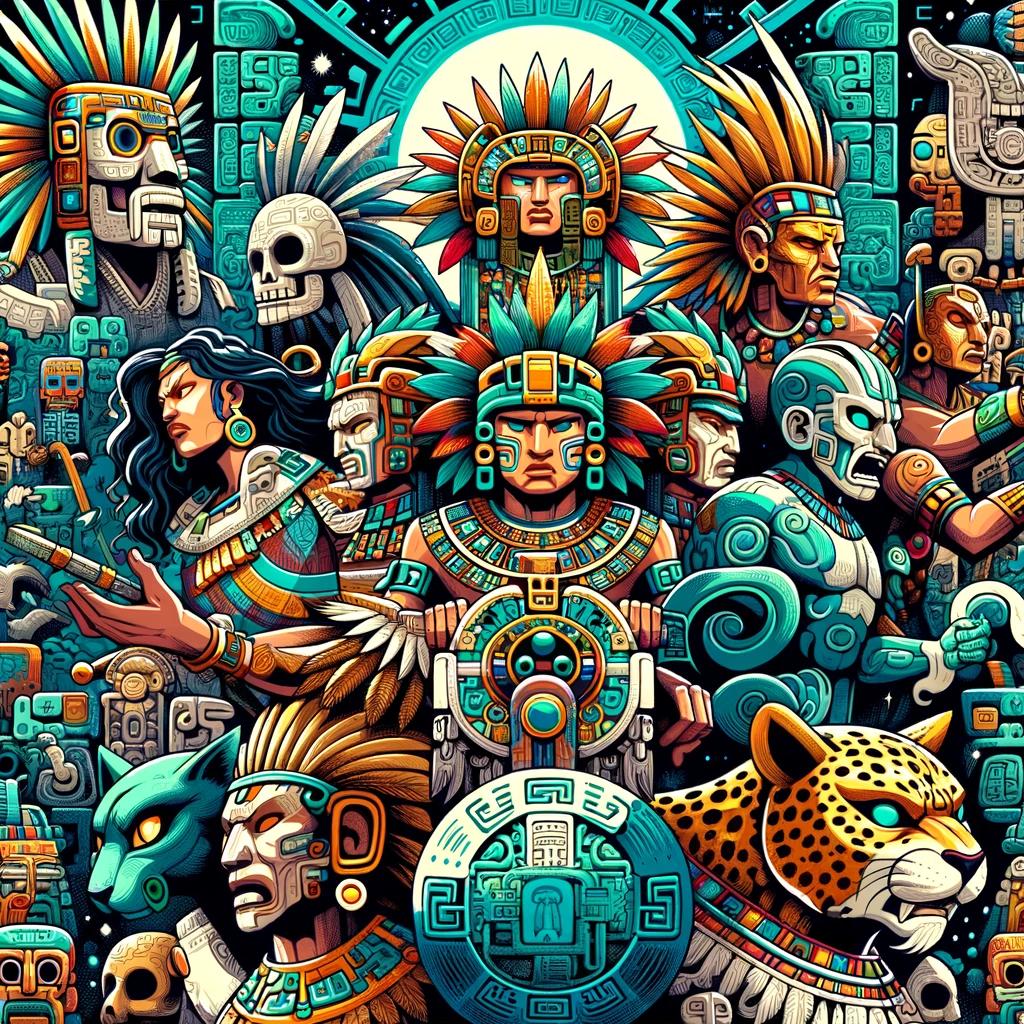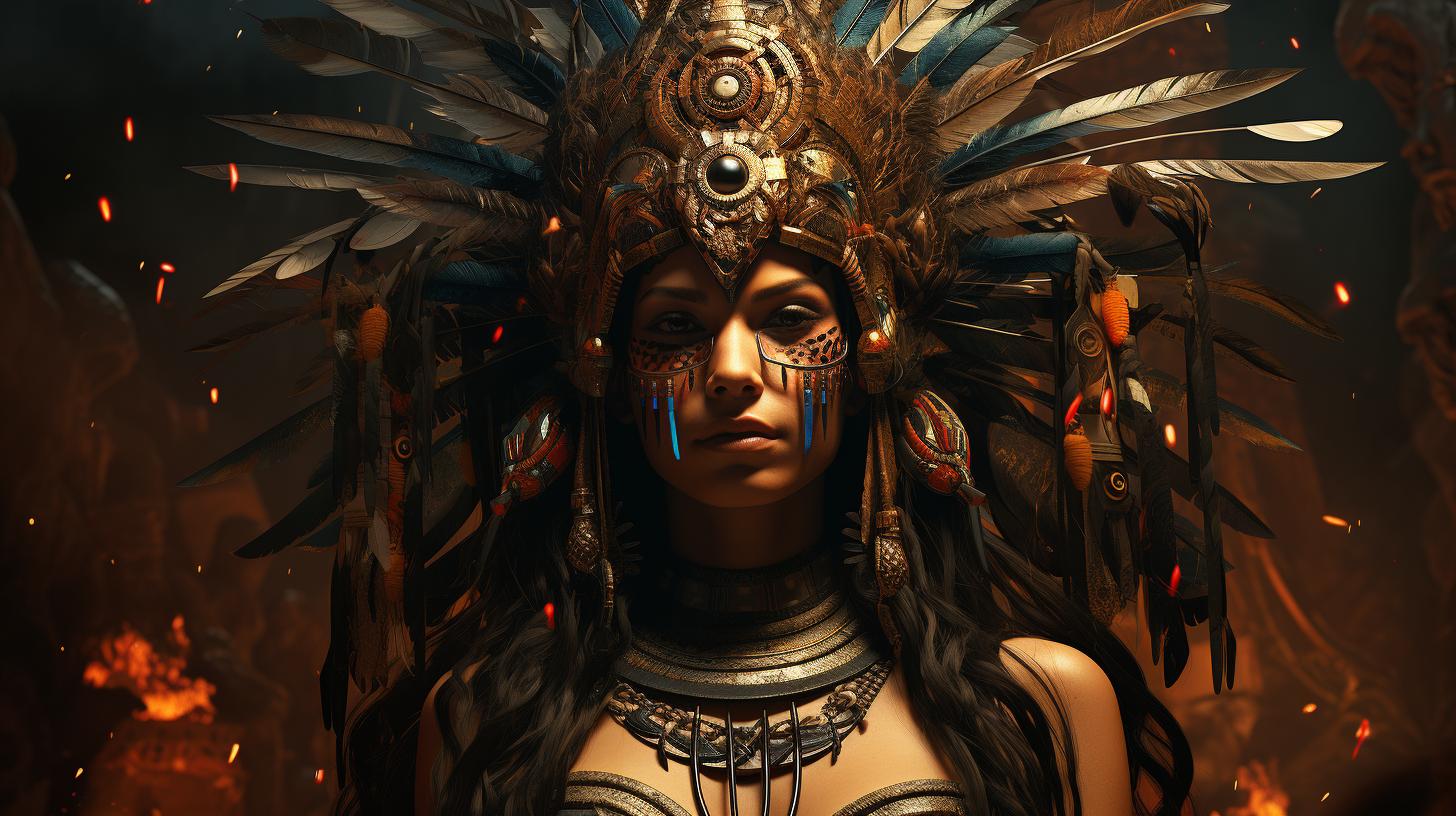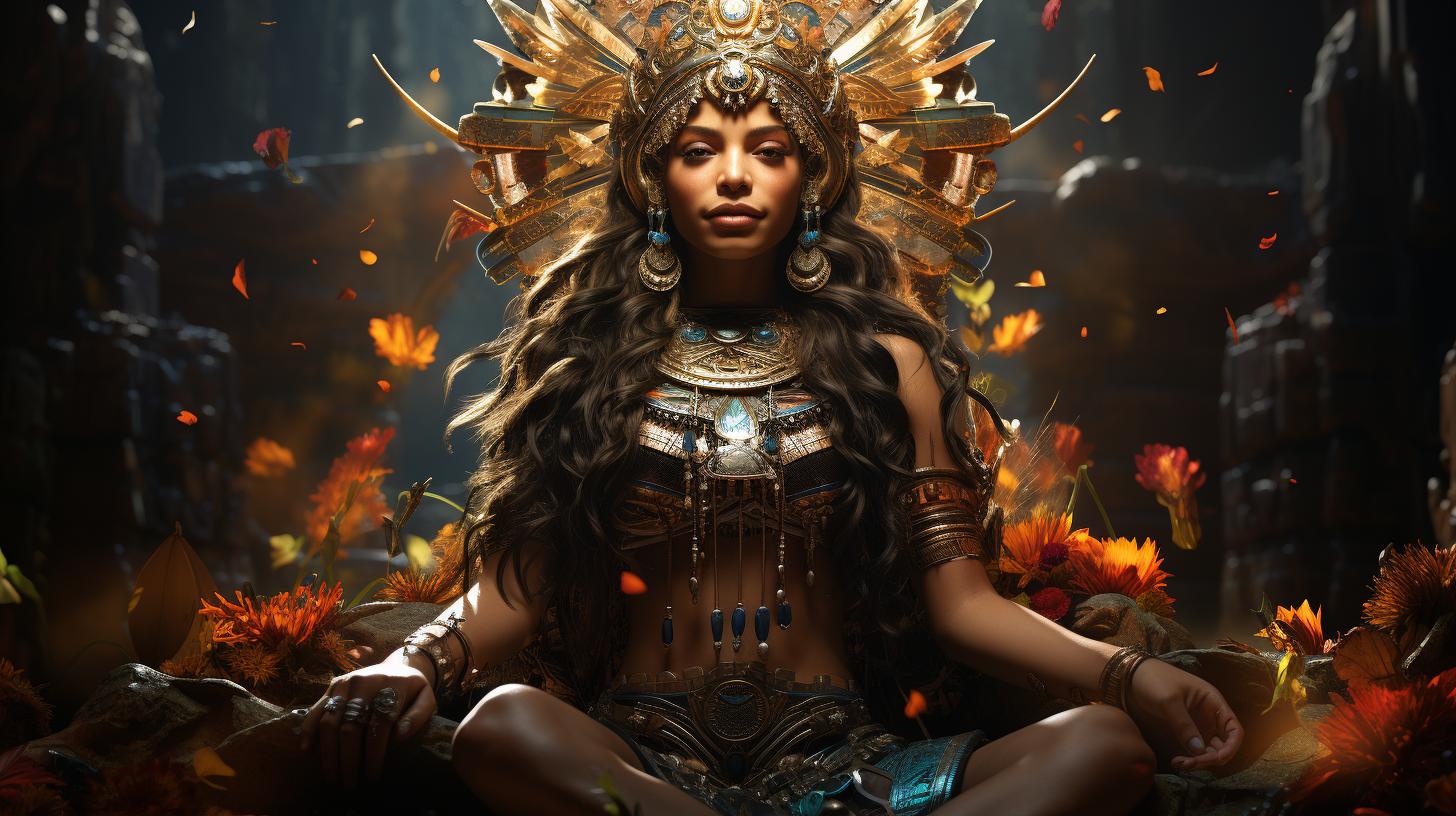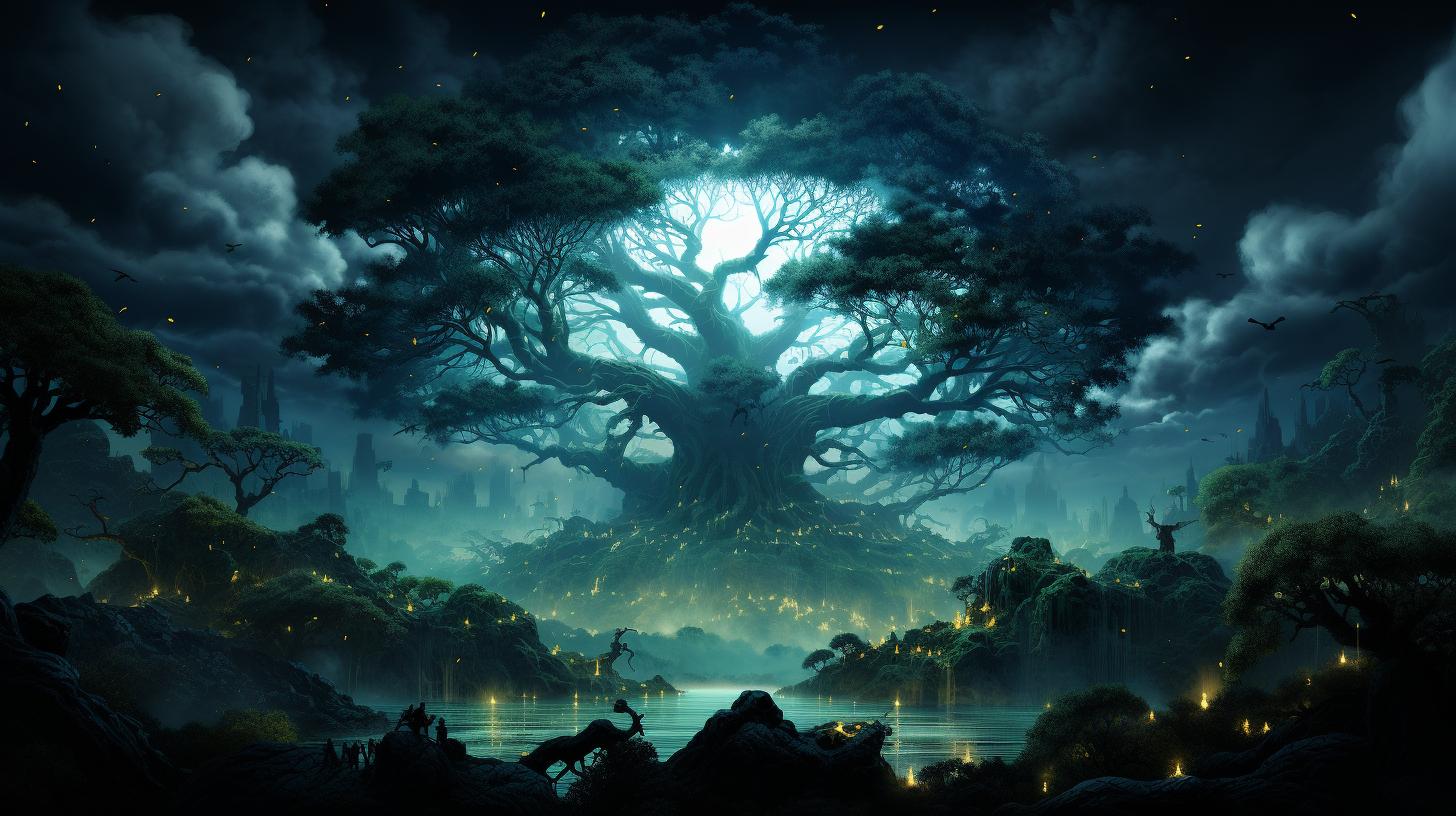Mayan Mythology Creation Story: Unveiling the Ancient Origins
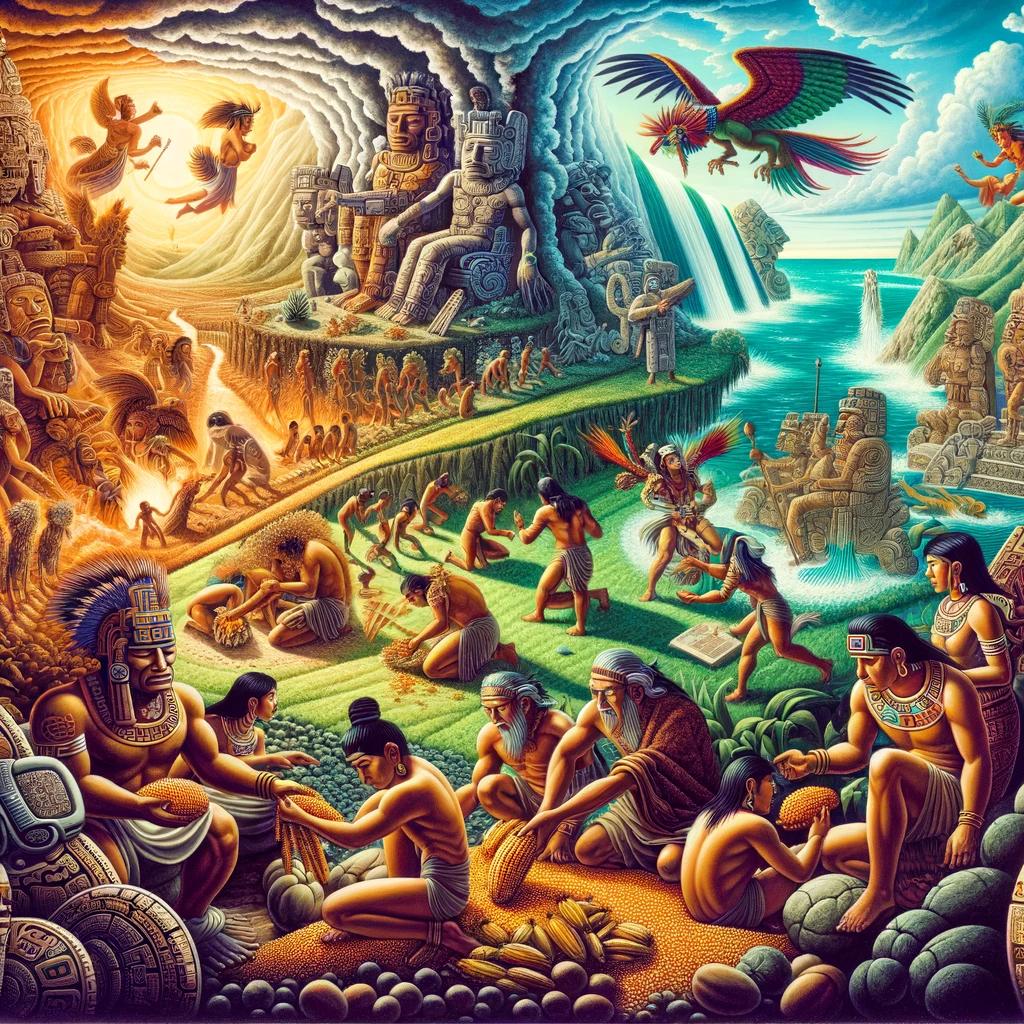
The Mayan Mythology Creation Story holds ancient origins and deep cultural significance. Exploring the mythology and gods of the Maya, we delve into the creation story depicted in the revered Popol Vuh.
Unraveling the symbolism and exploring its influence on society, we also examine the interplay of Mayan mythology with historical events. Decoding hidden meanings and examining its impact on contemporary culture, Mayan mythology continues to captivate and inspire.
This article navigates through the studies, research, and recent discoveries surrounding the vast world of Mayan mythology.
The Origins of Mayan Mythology Creation Story
The Mayan Mythology Creation Story holds captivating insights into the ancient beliefs and cultural heritage of the Maya civilization. This section delves into various aspects of this extraordinary narrative, unraveling the rich mythological tapestry surrounding the origins of Mayan creation.
From the enchanting mythology of the Mayan creation story to exploring the wonders of the ancient world through their legends, this exploration leads to a deep understanding of the interconnected relationship between myth and culture.
The Mythology of the Mayan Creation Story
Within the mythology of the Mayan creation story lies a treasure trove of gods, heroes, and supernatural beings. This subsection delves into the intricacies of their cosmology, shedding light on the pivotal role played by revered figures such as Hunahpu, Xbalanque, Itzamna, and more.
Uncovering the ancient stories of the Hero Twins and their heroic feats, this journey takes us into the realms of sacred mythology and the creation of the cosmos.
Exploring the Ancient World of Mayan Mythology
The ancient world of Mayan mythology is a labyrinth of symbolism and cultural significance. This exploration brings to light the profound connections between the gods and elements of nature, including celestial bodies, animals, and natural phenomena.
Through deciphering the Mayan glyphs and studying their sacred calendar systems, we unlock the wisdom passed down through generations, delving into the rituals, ceremonies, and celestial observations that marked the Maya’s spiritual and everyday life.
Unveiling the Myths and Gods of Mayan Culture
Delve into the heart of Mayan culture as we reveal the myths and gods that shaped their society. From the benevolent deities of fertility and agriculture to the awe-inspiring figures associated with war and sacrifice, the mythology of the Maya reflects their deeply rooted beliefs and worldview.
This exploration sheds light on the pantheon of gods worshipped by the ancient Maya and the profound influence these deities held over all aspects of their lives, including agriculture, astronomy, governance, and spiritual practices.
The Significance of the Feathered Serpent in Mayan Mythology
The feathered serpent holds a profound significance in Mayan mythology, representing a powerful deity with complex symbolism and influence. As we delve into the mystery of the feathered serpent deity, we explore its role in Mayan culture and its connection to other deities.
Unraveling the Mystery of the Feathered Serpent Deity
The feathered serpent, known as Quetzalcoatl in Aztec mythology and Kukulkan in Mayan mythology, has long intrigued scholars and researchers. Its enigmatic nature and iconic representation have stirred countless debates and interpretations.
By examining ancient texts, artifacts, and iconography, we aim to shed light on the essence and origin of this captivating deity.
The Role of Quetzalcoatl and Kukulkan in Mayan Mythology
Quetzalcoatl and Kukulkan play essential roles in Mayan mythology, representing both creation and destruction, wisdom and chaos. These revered deities shape the cosmic order and influence various aspects of life, such as agriculture, astronomy, and the divine protection of the people.
Through understanding their roles and narratives, we gain insight into the beliefs and values of the Mayan civilization.
The Symbolism of the Feathered Serpent in Mayan Beliefs
The symbolism of the feathered serpent encompasses multiple layers of meaning in Mayan beliefs. It represents the union of earthly and celestial realms, symbolizing power, transformation, and the cyclic nature of life.
Furthermore, the feathered serpent embodies the connection between humans and the gods, serving as a bridge between the mortal and divine realms. By delving into the intricate symbolism, we unravel the profound significance behind this mythical creature.
The Creation Story in Popol Vuh: A Journey into Mayan Origins
The Popol Vuh, a monumental work in Mayan mythology, holds great cultural importance in understanding the origins of the Mayan people. This sacred text provides profound insights into the creation of humans and their place in the celestial order.
Understanding the Popol Vuh and its Cultural Importance
The Popol Vuh, written in the K’iche’ language, unveils the rich tapestry of Mayan mythological beliefs. This influential manuscript serves as an invaluable repository of Mayan cosmology, genealogy, and religious practices.
It sheds light on the spiritual connection between the Mayan people and their ancestral lineage.
The Creation of Humans in Mayan Mythology
According to the Popol Vuh, the gods embarked on a series of attempts to create humans who possessed both heart and intellect. After previous failed endeavors, they finally molded humans out of white and yellow corn, imbuing them with the essence of maize, a staple crop vital for survival.
The Hero Twins and their Role in the Mayan Creation Story
A central narrative within the Popol Vuh revolves around the Hero Twins, Hunahpu and Xbalanque. These twin brothers, through their epic battles and cunning, successfully navigated the treacherous underworld, outwitting various death gods.
Their story serves as an allegory for resilience, transformation, and the triumph of light over darkness in the Mayan creation narrative.
Mayan Mythology and its Influence on Ancient Society
The rich mythology of the Maya civilization had a profound impact on their ancient society, shaping their beliefs, traditions, and daily life. Through examining the impact of Mayan mythology on ancient civilization, we can gain valuable insights into the cultural and spiritual world of the Maya.
Examining the Impact of Mayan Mythology on Ancient Civilization
Mayan mythology played a pivotal role in ancient society, influencing various aspects of Maya life. The myths provided explanations for natural phenomena, such as the creation of the world, the origin of humans, and the cycle of life and death.
These beliefs shaped the Maya’s understanding of their place in the cosmos and guided their rituals, ceremonies, and social structure.
Moreover, Mayan mythology influenced the political and religious systems of ancient society.
The rulers often claimed divine lineage, associating themselves with powerful deities to legitimize their authority. Mythological narratives were instrumental in establishing societal norms, moral codes, and the principles of governance.
The Cultural Legacy of Mayan Mythology
The cultural legacy of Mayan mythology extends far beyond the ancient civilization itself.
Even after the decline of the Maya city-states, their mythological traditions endured, impacting later Mesoamerican cultures, such as the Aztecs and other indigenous groups.
Mayan mythological motifs, symbols, and narratives permeated various aspects of art, architecture, and pottery, leaving an indelible mark on the artistic expressions of subsequent societies.
The pantheon of gods and the stories of mythological heroes continued to inspire literary works and oral traditions in the region for centuries, showcasing the enduring significance of Mayan mythology.
The Evolution of Mayan Mythology throughout History
Over time, Mayan mythology underwent changes and adaptations, reflecting historical events and cultural shifts. As the Maya civilization flourished and interacted with neighboring cultures, their mythological narratives assimilated new elements and integrated foreign deities.
The arrival of the Spanish conquistadors and the subsequent colonization led to the suppression and alteration of many Mayan myths, as the indigenous traditions clashed with the imposed religious beliefs of the European colonizers.
However, Mayan mythology survived in underground resistance movements and syncretic religious practices, testifying to its resilience and enduring importance.
- This evolution of Mayan mythology showcases its dynamic nature and its ability to adapt and persist throughout history and diverse cultural contexts.
- The impact of Mayan mythology on ancient society is evident in its influence on religious practices, artistic expressions, social structure, and the collective memory of the Maya people.
- The cultural legacy of Mayan mythology continues to inspire and captivate people worldwide, highlighting the enduring power of these ancient beliefs and narratives.
As we delve deeper into the influence of Mayan mythology, we gain a greater appreciation for the complexities and significance of this ancient civilization and the timeless wisdom contained within their mythical stories.
The Interplay of Mayan Mythology with Historical Events
Mayan Mythology in the Context of Historical Narratives
Mayan mythology transcends mere storytelling, intertwining itself with the historical narratives of the ancient Maya civilization. The myths not only served as cultural heritage but also reflected the beliefs, struggles, and triumphs of the Maya people throughout their history.
By examining the myths within their historical context, we gain a deeper understanding of the Maya’s worldview and how it shaped their actions and perceptions of the world around them.
The Role of Myths in Shaping Mayan Society
Myths held a central position in Mayan society, influencing various aspects of life, including social structure, governance, and religious practices.
They provided a framework for moral guidelines, reinforced societal norms, and explained natural phenomena. By exploring the role of myths in shaping Mayan society, we can discern the profound impact of mythology on the Maya’s collective consciousness and cultural identity.
Exploring the Connections between Mayan Mythology and Real-World Events
Mayan mythology is not limited to fantastical tales; it often intertwines with real-world events. By examining the connections between mythology and historical occurrences, we uncover the intricate web of beliefs, rituals, and practices that influenced the Maya’s responses to significant events such as wars, droughts, and political shifts.
Understanding these connections offers valuable insights into the Maya’s perspectives on history and allows us to piece together a more comprehensive understanding of their civilization.
Unveiling the Hidden Symbolism in Mayan Mythology
The rich tapestry of Mayan mythology is woven with intricate symbolism that holds deep meaning and insights into its gods, creatures, and creation story.
Let’s delve into the enigmatic world of Mayan symbolism and unravel its hidden messages.
Decoding the Symbolism behind Mayan Gods and Creatures
Mayan gods and creatures embody a wealth of symbolism that reflects various aspects of the natural world, celestial bodies, and human characteristics. By decoding these symbols, we gain a deeper understanding of the cultural beliefs and values embedded in Mayan mythology.
- The Jaguar: Symbolizing power, strength, and the connection between the earthly and supernatural realms.
- The Feathered Serpent: Depicting the duality of creation and destruction, representing both cosmic harmony and cosmic chaos.
- The Maize God: Signifying fertility, abundance, and the life-sustaining power of corn in Mayan society.
The Deep-rooted Meanings Embedded in Mayan Creation Story
The Mayan creation story is not just a mere narrative; it carries profound symbolic meanings that shed light on the origin of the universe, the essence of humanity, and the purpose of existence.
By exploring these deep-rooted meanings, we unlock the philosophical and spiritual insights concealed within the myth.
Creation as Transformation: An Everlasting Cycle
Mayan creation myth highlights the cyclical nature of existence, where creation, destruction, and rebirth are intertwined. It symbolizes the eternal continuum of life and the interconnectedness of all living beings within the cosmic tapestry.
Humanity’s Divine Connection: Made of Divine Elements
In the Mayan creation story, humans are not merely disposable entities but divine beings crafted from sacred materials. This symbolism highlights the inherent spiritual nature of humanity and emphasizes our intimate connection with the divine realm.
The Role of Balance: An Equilibrium for Cosmic Order
The Mayan creation myth underscores the importance of balance and harmony in the cosmic order. It symbolizes the delicate equilibrium between opposing forces and the need for balance within nature, society, and the individual.
Unraveling the Secrets of the Mayan Cosmos
The Mayan cosmos is a complex web of interconnected realms, each with its own symbolism. By unraveling the secrets of this intricate cosmology, we gain insight into the Mayan worldview, the interplay of gods and humans, and the cosmic energies that shape their existence.
- Xibalba: The Underworld and its symbolism of death, transition, and transformation.
- Tamoanchan: The Celestial Realm representing the origin of life and divine inspiration.
- Middle Earth: The Physical World where humans reside, reflecting the challenges and opportunities of earthly existence.
The Influence of Mayan Mythology on Contemporary Culture
The rich and captivating world of Mayan mythology continues to have a profound impact on modern society.
Its enduring presence can be observed in various aspects of our culture, from art and literature to entertainment and popular culture.
The Enduring Presence of Mayan Mythology in Modern Society
Mayan mythology has transcended time and continues to be an influential force in contemporary society. Its profound narratives and powerful symbolism have captured the imagination of people around the world.
The enduring presence of Mayan mythology serves as a reminder of the deep-rooted connection between ancient civilizations and the human experience.
Mayan Mythology in Art, Literature, and Entertainment
- Art: Mayan mythology has inspired countless works of art, ranging from traditional indigenous artworks to contemporary interpretations. These artistic expressions often depict the gods, heroes, and creatures of Mayan mythology, inviting viewers to explore the spiritual realm and connect with the ancient stories.
- Literature: Authors and writers have drawn inspiration from Mayan mythology, incorporating its themes and characters into their literary creations.
Through novels, poems, and short stories, they bring Mayan tales to life, allowing readers to immerse themselves in the vibrant world of ancient mythology.
- Entertainment: The influence of Mayan mythology can also be seen in the world of entertainment.
Movies, television shows, and video games often incorporate Mayan elements, transporting audiences to mystical realms filled with mythical creatures and epic adventures. These mediums offer a modern interpretation of Mayan mythology and introduce it to new generations.
The Fascination with Mayan Mythology in Popular Culture
Mayan mythology has captured the fascination of popular culture, permeating various aspects of our daily lives.
From fashion trends featuring Mayan-inspired designs to music videos and songs that draw inspiration from ancient Mayan beliefs, the allure of Mayan mythology is evident. This fascination reflects our ongoing fascination with ancient civilizations and our desire to connect with the wisdom and wonder of the past.
Exploring the Studies and Research on Mayan Mythology
The Historical Scholarship on Mayan Creation Story
The historical scholarship on Mayan creation story provides valuable insights into the origins and evolution of Mayan mythology. Researchers have delved into ancient texts, archaeological findings, and linguistic analysis to uncover the rich symbolism and narrative structure of these stories.
Through meticulous examination, scholars have pieced together the historical context and cultural significance of the Mayan creation narrative, shedding light on the beliefs and rituals of the ancient Mayan civilization.
Recent Discoveries and Interpretations of Mayan Mythology
In recent years, exciting discoveries and interpretations have expanded our understanding of Mayan mythology.
Archaeological excavations have unearthed new artifacts, murals, and hieroglyphics, offering fresh glimpses into the spiritual and mythological practices of the Maya. Scholars have also developed innovative approaches, such as interdisciplinary studies combining anthropology, history, and linguistics, to decipher previously enigmatic aspects of Mayan mythology.
These findings challenge existing assumptions and open up new avenues of exploration in the field.
The Future of Mayan Mythology Research and Understanding
The future of Mayan mythology research holds exciting prospects. Advancements in technology and interdisciplinary collaboration are expected to uncover even more hidden aspects of Mayan mythology. Additionally, ongoing efforts to preserve and document ancient Mayan texts and oral traditions will provide further opportunities for in-depth analysis.
As our knowledge of the Mayan language and culture continues to expand, we can look forward to uncovering deeper layers of meaning within Mayan mythology and its profound influence on the ancient Maya civilization.
- Exploring ancient texts and artifacts to unravel the historical context and cultural significance of Mayan mythology
- Applying interdisciplinary approaches to decode previously unclear aspects of Mayan mythology
- Utilizing advanced technologies to enhance our understanding of Mayan cosmology and symbolism
- Preserving and documenting ancient Mayan texts and oral traditions for future research and analysis
- Collaborating with indigenous communities to gain insights into the living traditions and interpretations of Mayan mythology
.

